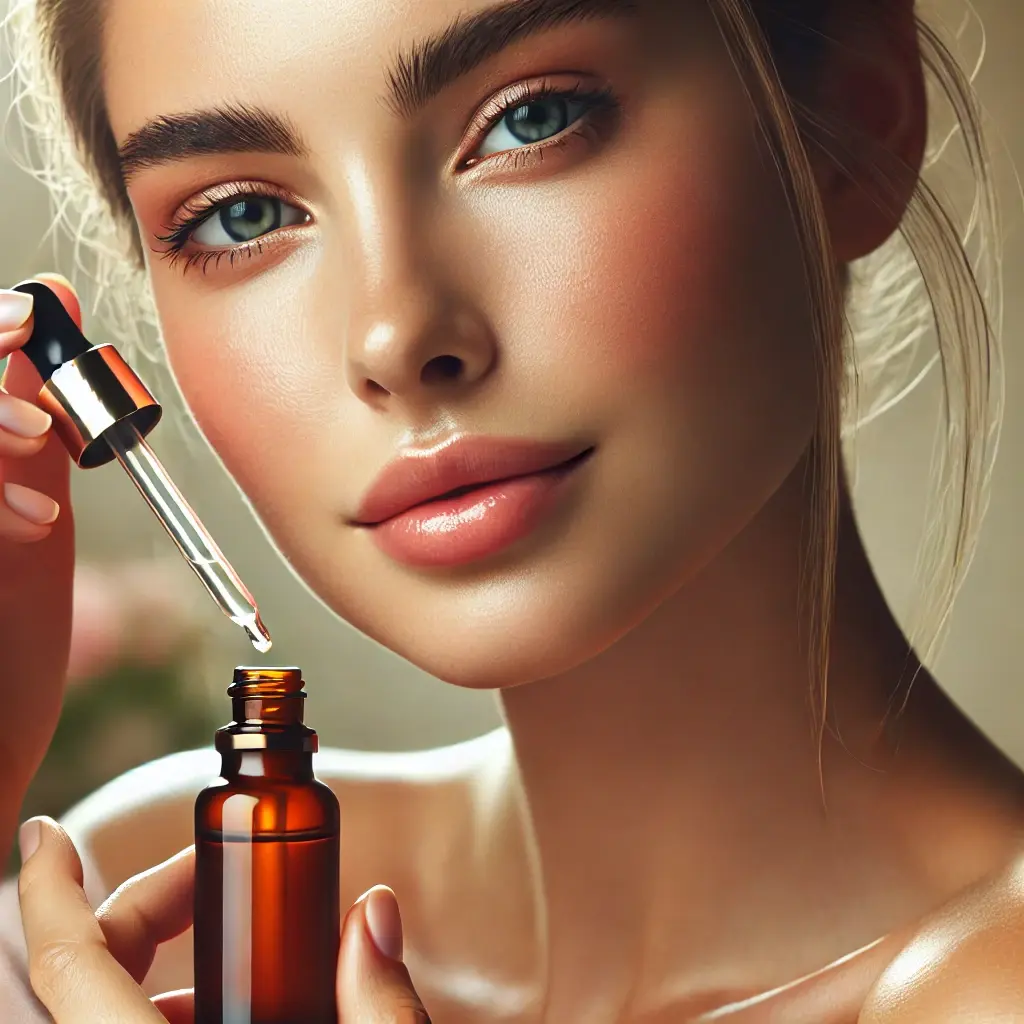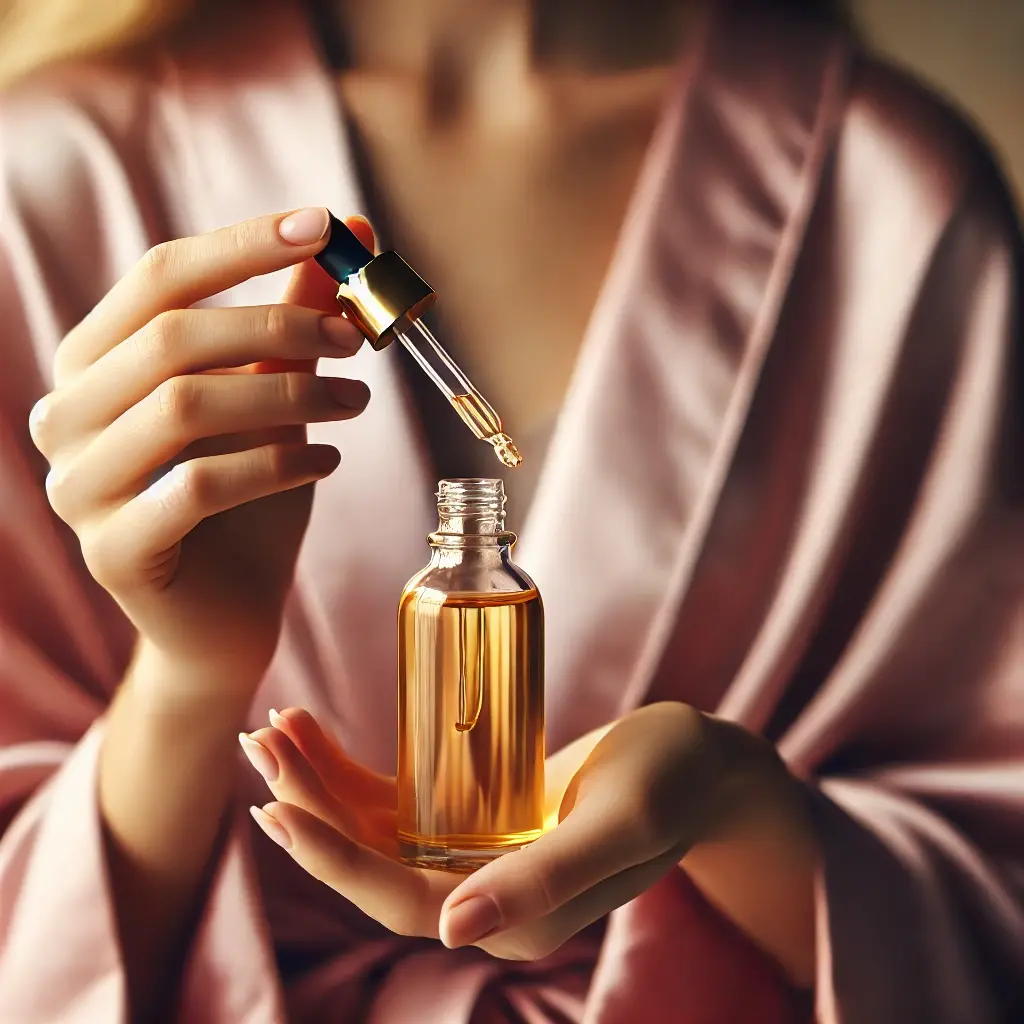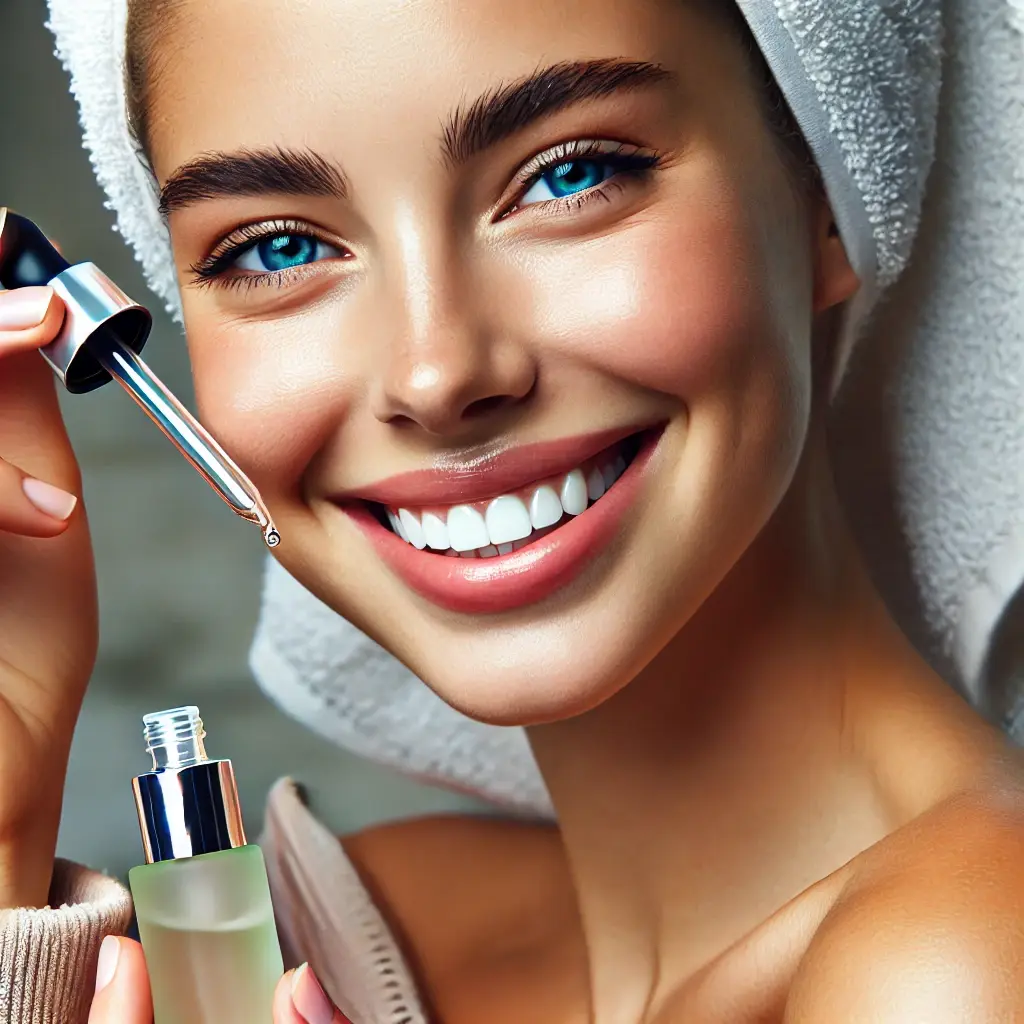If you’re looking for the latest skincare ingredient that can genuinely work wonders for your skin, copper peptides might be just what you need. In the world of beauty and skincare, trends come and go, but some ingredients—like copper peptides—truly live up to the hype. Known for their unique anti-aging, healing, and skin-repairing properties, copper peptides are becoming a must-have in any effective skincare routine.
So, what makes copper peptides so special? These powerful compounds blend copper ions with amino acid chains (called peptides) that play a vital role in skin repair and regeneration. Copper, a natural element essential for our body’s overall health, has an impressive track record when it comes to wound healing and inflammation reduction. By pairing it with peptides, skincare scientists have developed a way to deliver these benefits directly to our skin, enhancing everything from collagen production to elasticity and resilience.
And here’s the best part: copper peptides aren’t just for one skin type or age group. Whether you’re dealing with fine lines and wrinkles, loss of firmness, acne scars, or just looking to give your skin a healthy boost, copper peptides can be a game-changer. But before you dive in, it’s important to understand exactly how they work, the benefits they offer, and the best ways to use them in your skincare routine. In this guide, we’ll break down everything you need to know about copper peptides—covering their science-backed benefits, potential side effects, product recommendations, and practical tips for getting the most out of them.
Ready to see if copper peptides could be the missing piece in your skincare puzzle? Let’s explore what these incredible ingredients can do for your skin!
Table of contents
What Are Copper Peptides?
Imagine a powerhouse skincare ingredient that can firm up your skin, boost radiance, and support a youthful glow—all in one. That’s where copper peptides come in! At their core, copper peptides are tiny compounds that mix copper ions with peptides, which are short chains of amino acids. These peptides are like little messengers, communicating with skin cells to keep your skin looking healthy, firm, and youthful. And why copper, you might ask? Copper is actually a trace mineral that our bodies need for various essential functions, from brain health to bone strength. But in skincare, copper has a unique superpower: it can rejuvenate the skin, helping us maintain that fresh, resilient complexion.
The Science Behind Copper Peptides
To understand what makes copper peptides so effective, let’s take a closer look at how these ingredients work on a cellular level.
How Copper Ions and Peptides Work Together
Copper ions have a positive charge, which allows them to interact with negatively charged amino acids in peptides. This connection creates a powerful synergy, as the peptides carry copper ions deep into the skin, where they stimulate collagen and elastin production. Think of collagen and elastin as the building blocks of skin’s structure: collagen adds firmness and strength, while elastin gives skin that flexible, bouncy feel. Together, they are the foundation of smooth, firm skin. By promoting the production of these two proteins, copper peptides help the skin become firmer, plumper, and more resilient over time. This can make a huge difference, especially for aging skin that needs a little extra support.
The Role of Copper Peptides in Skin Health
Copper peptides are often called “skin remodeling agents,” and it’s no wonder why. These little compounds can signal the skin to repair itself, making them a fantastic choice for anyone looking to rejuvenate damaged or aging skin. When applied, copper peptides get to work as messengers, communicating with skin cells to boost collagen synthesis, repair tissue, and even aid in wound healing. They help “remodel” the skin, making it look healthier and more refreshed.
Recent studies have even suggested that copper peptides may have the ability to repair damaged DNA within skin cells. This is especially interesting for those concerned about sun damage and pigmentation issues, as DNA repair can potentially protect against the early signs of aging and reduce discoloration caused by UV exposure. While more research is needed to fully understand this process, the preliminary findings are exciting and suggest that copper peptides could offer long-term benefits beyond just firming and hydrating the skin.
So, if you’re looking for an ingredient that goes beyond surface-level changes, copper peptides might just be what you’re looking for. They work on a deeper level, actively supporting your skin’s health from within and helping it look and feel its best.

Benefits of Copper Peptides for Skin
Copper peptides offer a range of impressive benefits. When incorporated into your skincare routine, they can transform your skin’s texture, appearance, and resilience over time.
Enhances Collagen and Elastin Production
As we age, collagen and elastin levels naturally decline, leading to sagging skin and the formation of fine lines and wrinkles. Copper peptides stimulate the fibroblasts, cells responsible for producing collagen and elastin, which results in firmer, smoother skin over time. This effect can lead to noticeable improvement in skin texture, particularly around areas prone to sagging, like the cheeks, neck, and jawline.
Reduces Inflammation and Soothes Irritated Skin
Copper peptides possess anti-inflammatory properties that make them suitable for sensitive or acne-prone skin. By calming inflammation, copper peptides help reduce redness, swelling, and overall irritation. This is particularly beneficial for those who have conditions like rosacea, eczema, or psoriasis, as it allows skin to heal more comfortably and reduces the risk of secondary infections.
Promotes Faster Wound Healing
Clinical research has shown that copper peptides play an important role in wound healing, which makes them beneficial for people with acne scars or other skin injuries. When applied topically, copper peptides can help accelerate the healing process and improve the appearance of scar tissue, making them an ideal choice for those recovering from acne breakouts or other skin traumas.
Fights Free Radicals
Free radicals are unstable molecules that can cause damage to skin cells, leading to premature aging, dullness, and fine lines. Copper peptides are powerful antioxidants that neutralize these free radicals, reducing oxidative stress on the skin and protecting it from environmental damage. This protective effect can make copper peptides an excellent addition to any anti-aging skincare routine, as it helps to prevent new wrinkles and skin dullness.
Improves Skin Tone and Reduces Hyperpigmentation
Some studies suggest that copper peptides can help improve skin tone by reducing the appearance of hyperpigmentation. They may work by encouraging the skin’s natural shedding process, which gradually fades dark spots and uneven pigmentation over time.

How to Use Copper Peptides in Your Skincare Routine
Copper peptides are generally safe to use, but there are specific practices to follow to maximize their benefits and prevent any adverse effects.
Incorporating Copper Peptides Effectively
Start Slow for Maximum Benefit
If you’re new to copper peptides, it’s best to introduce them slowly into your routine to see how your skin reacts. Try using them every other night initially, gradually increasing the frequency to daily use if your skin shows no signs of irritation.
Avoid Mixing with Certain Ingredients
Copper peptides can react negatively when mixed with certain active ingredients, such as vitamin C, AHAs (like glycolic acid), and retinoids. These ingredients may destabilize the copper peptides, reducing their effectiveness. For this reason, many experts recommend using copper peptides on alternating nights or in a separate routine from these ingredients.
Best Time to Use Copper Peptides
Copper peptides are versatile, but they’re especially effective when used at night. This is because the skin’s natural repair processes are most active during sleep, allowing the copper peptides to work in harmony with your skin’s regenerative cycle.
How Much Copper Peptide Product to Use
You only need a small amount of copper peptide serum or cream to cover your face and neck. Apply a few drops to clean, dry skin, and allow it to absorb fully before applying moisturizer or sunscreen.
Potential Side Effects of Copper Peptides
Like any skincare ingredient, copper peptides may not be suitable for everyone. Here are some potential side effects to keep in mind.
Possible Risks and Sensitivities
1. Skin Irritation
Some individuals with very sensitive skin may experience mild irritation, such as redness or a stinging sensation, especially if using a high concentration of copper peptides. To minimize the risk of irritation, perform a patch test before applying the product to your entire face.
2. Allergic Reactions
While rare, allergic reactions can occur with copper peptides. Symptoms may include itching, swelling, or a rash. If you experience any of these symptoms, discontinue use immediately and consult a dermatologist if the symptoms persist.
3. Changes in Skin Color
Excessive use of copper peptides can sometimes lead to skin discoloration. This is rare and usually only occurs when copper peptides are used in concentrations higher than recommended. To avoid this risk, use copper peptides as directed and avoid layering them with other copper-based products.

Choosing the Right Copper Peptide Product
With so many options available, finding the right copper peptide product can be overwhelming. Here’s a quick guide to help you make an informed choice, along with some popular, well-reviewed products.
Tips for Finding the Best Copper Peptide Product
Look for GHK-Cu Peptide Formulations
GHK-Cu is a specific form of copper peptide that is well-researched and known for its high efficacy. Products with GHK-Cu are generally more potent and offer the most benefits for skin health.
Check for Clinical Evidence of Product Claims
Choose brands that offer transparency about the clinical testing and research behind their products. Look for products with independent reviews or published studies that validate their claims.
Opt for Trusted Brands and Popular Products
Reputable skincare brands invest in high-quality formulations and testing, so it’s wise to stick with companies known for their reliability. Here are some popular copper peptide products to consider:
1. The Ordinary Multi-Peptide + Copper Peptides 1% Serum
This budget-friendly serum combines multiple peptide complexes with copper peptides to target signs of aging, improve skin elasticity, and promote a smoother texture.
2. Drunk Elephant Shaba Complex Eye Serum
Formulated specifically for the delicate eye area, this serum uses copper peptides, black tea ferment, and niacinamide to reduce the appearance of fine lines and wrinkles while firming and hydrating.
3. Medik8 Copper PCA Peptides Serum
This powerful serum combines copper PCA with a blend of peptides to neutralize free radicals, support collagen production, and enhance skin elasticity, resulting in a more youthful complexion. (Learn more)
4. Biossance Squalane + Copper Peptide Rapid Plumping Serum
With copper peptides, squalane, and hyaluronic acid, this hydrating serum aims to plump the skin, reduce the appearance of fine lines, and promote a firmer, radiant complexion.
5. Paula’s Choice Peptide Booster
This versatile booster includes a blend of peptides, including copper peptides, to improve skin firmness and elasticity. It can be added to your existing moisturizer or serum, making it an easy addition to any skincare routine.
Conclusion
Copper peptides have quickly become a go-to ingredient in skincare, and it’s easy to see why. They offer unique benefits, from boosting collagen production to enhancing skin elasticity and helping with wound healing. Whether you’re looking to smooth fine lines, reduce inflammation, or simply add an extra layer of protection against environmental damage, copper peptides can be a powerful addition to your skincare routine.
That said, understanding how to use them properly is key. Start slowly, avoid mixing them with certain active ingredients, and consider using them at night to maximize their effects. With a little patience and the right product, copper peptides can work wonders over time, helping your skin look and feel firmer, brighter, and more youthful.
Ready to give copper peptides a try? Explore some of the popular products mentioned above, and see which one fits best into your routine. Remember, skincare is a journey—it takes time and consistency, but the results can be incredibly rewarding. So, go ahead, take that first step toward healthier, rejuvenated skin by adding copper peptides to your skincare lineup. Your skin will thank you!
Frequently Asked Questions
Can I use copper peptides with other skincare ingredients?
It’s best to avoid using copper peptides with strong acids, vitamin C, and retinoids, as they can reduce each other’s effectiveness. Try alternating these ingredients by using copper peptides at night and the other actives in your morning routine or on different days.
How often should I use copper peptides in my routine?
Start by using copper peptides every other day, especially if your skin is sensitive or new to this ingredient. Once your skin adjusts, you can gradually increase to daily use if needed.
What’s the best way to apply copper peptide products?
Apply copper peptides on clean, dry skin after cleansing and before heavier serums or moisturizers. A few drops are enough for your face and neck. Allow it to absorb fully before layering additional products.
How long does it take to see results with copper peptides?
Copper peptides work gradually, so it may take about 4–6 weeks of consistent use to notice visible improvements in skin texture, firmness, and overall radiance. For best results, use as directed and stay consistent.
Related Articles on BeautyStyleMag
- Skincare Routine for Every Age; From Your 20s to Your 50s and Beyond
- 7 Skincare Ingredients to Know for Healthier Skin
- 10 Skincare Mistakes to Avoid for Healthier Skin
For more inspiration, check out reliable resources like healthline.com and www.marieclaire.co.uk for expert advice.



